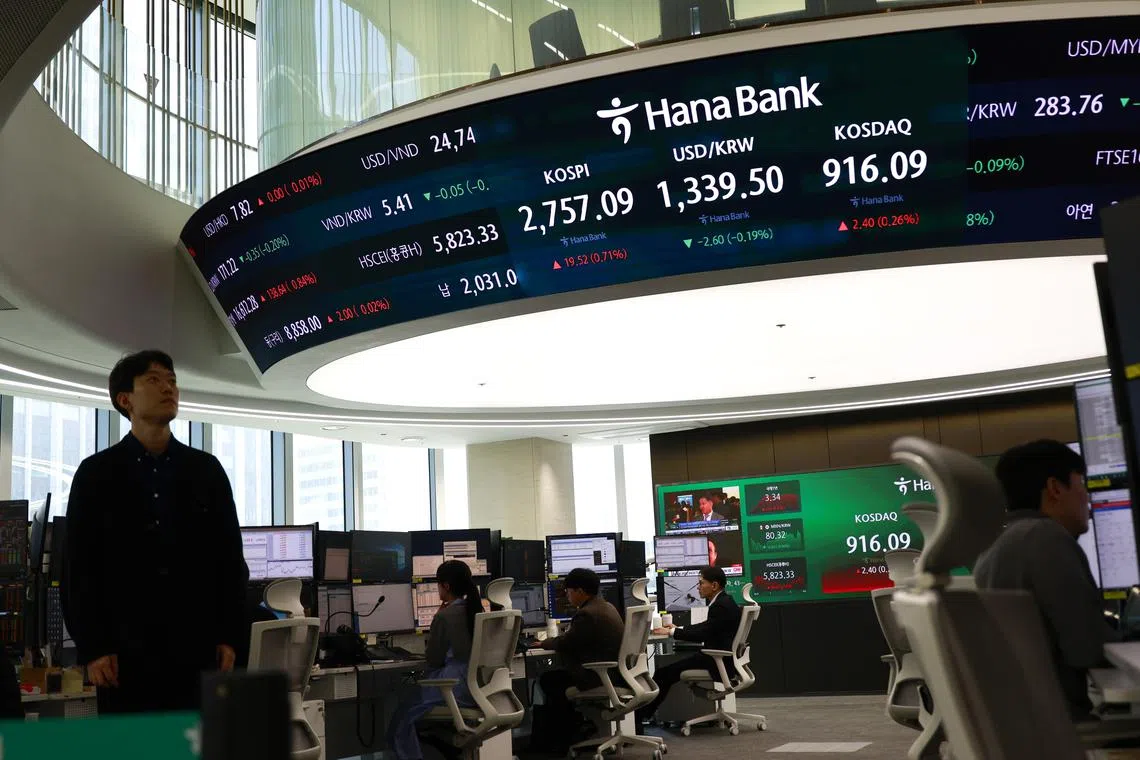FTSE holds off adding South Korea, India to key bond indexes
Sign up now: Get ST's newsletters delivered to your inbox

South Korea has been keen to get the index upgrade since FTSE added the country to its watch list for potential inclusion in September 2022.
PHOTO: EPA-EFE
Follow topic:
SEOUL - FTSE Russell said South Korea will continue to stay on the watch list for inclusion to its global bond index – and India for the emerging-market equivalent – once more delaying the countries’ addition to the key indexes by at least another six months.
The index provider “will continue to monitor the positive developments in the South Korean government bond market towards the successful fulfilment” of the criteria, FTSE said in a statement on March 27.
It also acknowledged progress in “the accessibility of the Indian government bond market”, but said the Indian market still does not satisfy certain criteria.
South Korea has been keen to get the index upgrade since FTSE added the country to its watch list for potential inclusion in September 2022. The move is expected to draw as much as 90 trillion won (S$89.8 billion), according to the South Korean government, citing estimates from investment banks.
The South Korean authorities have been intensifying efforts to improve the country’s market systems to court more foreign investors, most recently letting some global investors participate in the local interbank currency market. The government is also testing out extended trading hours of the local won market, ahead of its official extension due in July.
Meanwhile, India still does not meet criteria including increased regulatory reporting and the tax clearance process, FTSE said. Both countries were not included on the indexes when they were last reviewed in September 2023.
FTSE Russell’s decision highlights the hurdles some investors continue to face in accessing India’s bond market, even as the nation’s debt is set to get added to JPMorgan’s flagship emerging markets gauge starting in June. Others have been piling in though, with inflows to the nation’s bonds helping make it one of the top performers in local currency emerging market debt in 2024.
On the equities side, FTSE Russell said it will keep Vietnam’s status as a frontier market unchanged. While it highlighted the country’s “resolute” drive, the index provider said it needs to see more improvements in access to the local equity market and issues around settlement of trades.
The country was added to the watch list in September 2018 for possible reclassification to secondary emerging markets, but the index compiler had said its progress has been slower than anticipated, in part due to Covid-19. A pre-funding requirement is the key hurdle to an upgrade, investors say.
The index compiler also retained Pakistan on the watch list for potential demotion to frontier market status from secondary emerging market amid a steady decline in its index weight over the past few years. BLOOMBERG

